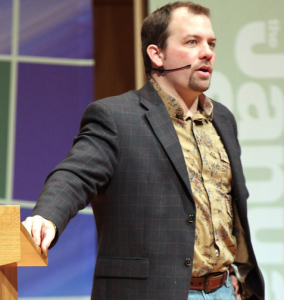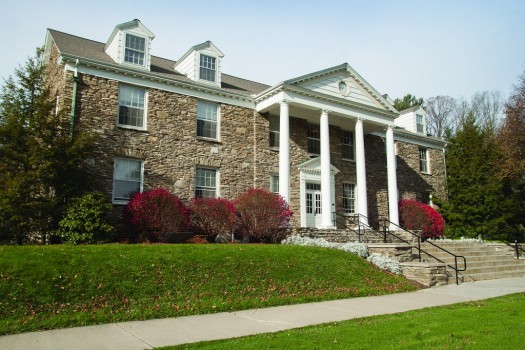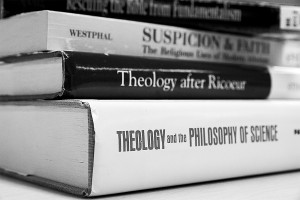This year’s Woolsey lecturer is James K.A. Smith, professor of philosophy at Calvin College in Grand Rapids, Michigan, as well as the author of a number of books. Among the most notable of his works are Desiring the Kingdom and Imagining the Kingdom, the first two books in an unfinished trilogy entitled “Cultural Liturgies.” His newest book and title of this year’s lecture series, You Are What You Love, came out this summer, and is in some ways an introduction to Smith’s philosophy and work in the trilogy.

Smith’s works are concerned with convincing the reader that the church focuses on the rational side of humanity far too much. One of the ideas expressed in You Are What You Love is that the Reformation boiled the mystery out of religion. Smith writes that religion became something that treated humanity as “brains-on-a-stick.” That is to say people were treated as if they were only rational, and that thinking was the best way to change people’s actions. He writes, “Your love or desire – aimed at a vision of the good life that shapes how you see the world while also moving and motivating you – is operative on a largely non-conscious level. Your love is a kind of automaticity.”
For Smith, the way to the head is through the desires of the heart. This interplay between head and heart is fundamental to him. He is most certainly not making an argument against the importance of the head, but rather attempting to bring the heart into better focus. Much of his work reflects this emphasis and encourages the reader to become aware of the falsehood claiming that reason is everything. According to Smith, desire plays one of, if not the biggest role, in human decision-making.
When asked about his work, Smith stated, “My argument, my passion, is to help evangelical Protestants remember they are catholic.” He continued, “That is, I think the future of the faith looks ancient, and that worship renewal comes from remembering what we have forgotten, constructively retrieving the rhythms and rituals of historic Christian worship as a reservoir of the Spirit’s formative power.” Smith wishes to invite the Protestant church back into an ancient conversation, which will require churches to become intentional. Smith said Christian education “needs to be holistic, not just providing contents for the mind but inscribing habits of the heart, what ancient thought described in terms of virtue.”
According to self-described “fanboy” of Smith, dean of the chapel, Michael Jordan, Smith’s message will be fresh for Houghton students. “I don’t know if people have really heard what he has to say yet,” said Jordan. He added that what Smith has to say, especially how the head and the heart are connected, is vital. “People of my parents’ generation who have worked at Houghton grew up in holiness churches who devalued the head and relied on the heart,” Jordan said.
Houghton, as a place that values the growth and shaping of the mind so heavily, can easily displace the importance of shaping the heart as well. Jordan believes what Smith has to say might flesh out what campus ministry can be for people and how it can be most impactful.
Smith will give two talks open to Houghton students while he is here, as well as several closed sessions for a ministry conference. The first will be Thursday, November 17 at 7 p.m. in the Center for Fine Arts (CFA) recital hall, and the other will be Friday, November 18 in the Wesley Chapel during the regularly scheduled chapel time.


